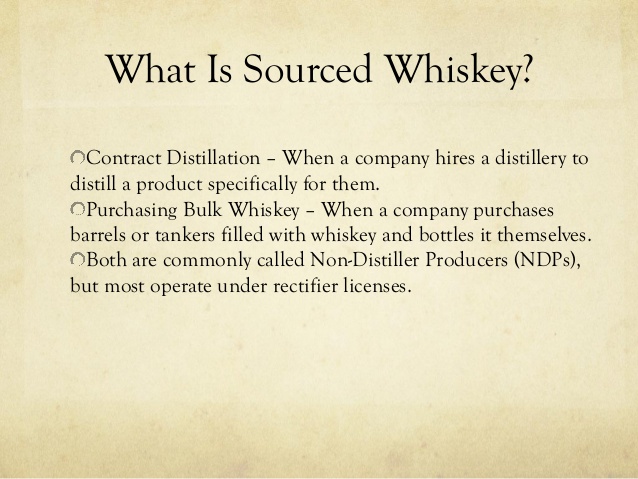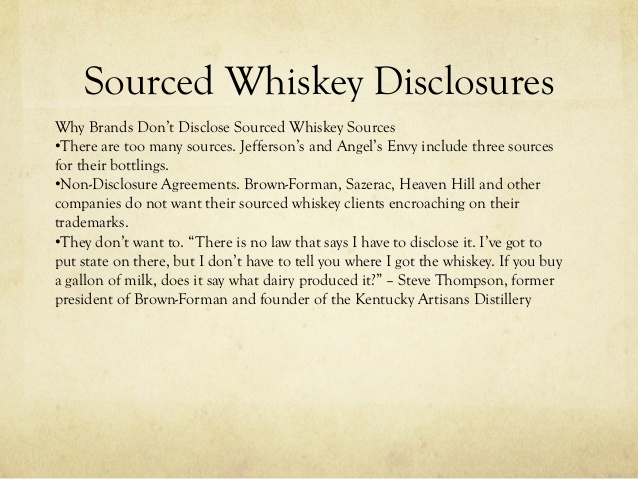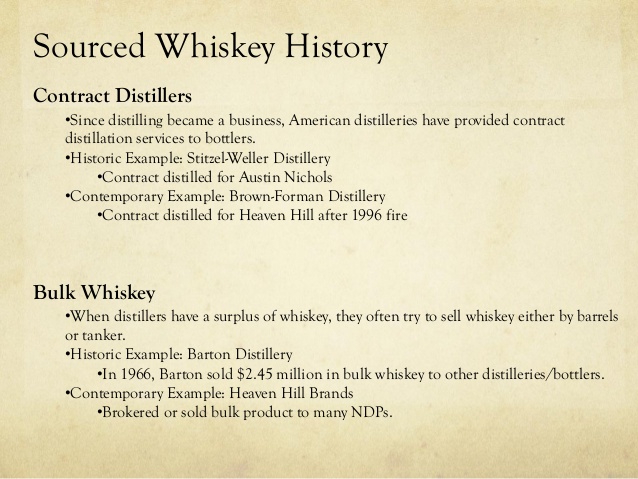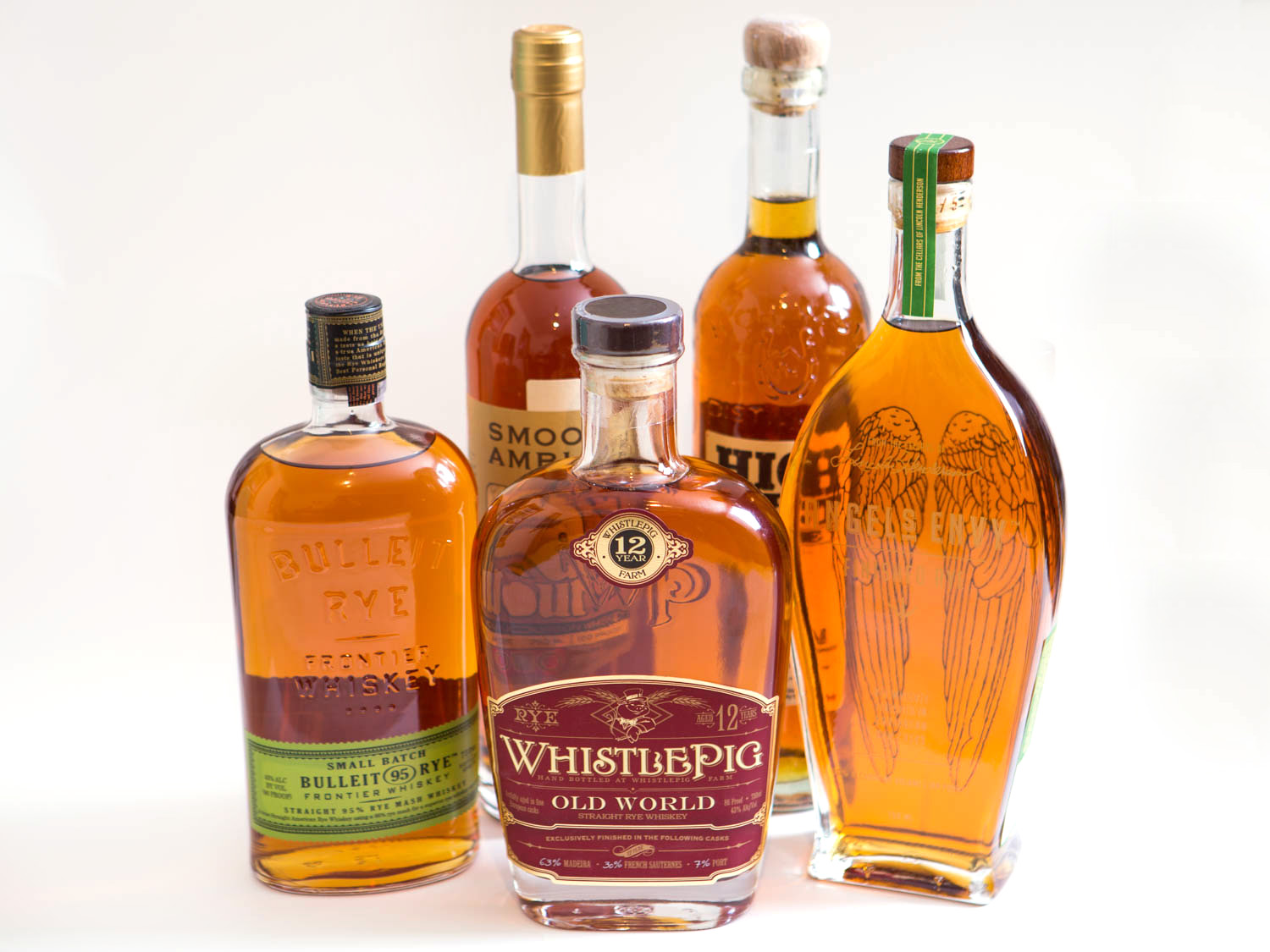I was asked at the Dram Devotee’s Whistle Pig tasting on Thursday, “Why do you sound so defensive when you are speaking about sourced whiskey?”
It must be true that I sound defensive or it wouldn’t have been noted by one of my guests. I can tell you that a lot of my defensiveness stems from the commentary that I read on the internet. I suppose I do feel the need to defend those companies that source their bourbons and ryes, but also manage to put out a consistently great product.
I’ve seen all the lists of sourced whiskeys from LDI/MGP (Lawrenceburg Distillers Indiana/Midwest Grain Products). (For those that have not seen the list, you can find information here- (http://recenteats.blogspot.com/p/the-complete-list-of-american-whiskey.html.) There is a lot of buzz around the idea that distilleries might pay another distillery to produce the product that they sell. Some folks say, “Craft distilling only comes from small craft distillers,” which implies that a small distiller should not be able to sell sourced product. Perhaps buying sourced whiskey, packaging that whiskey in pretty bottles with pretty labels and lying to your customers by saying (or implying) that the whiskey was actually distilled by your company is fraudulent, but not every sourced whiskey is sold in that manner.
Lists do not allow for much interpretation. The list of sourced whiskeys from MGP is a long one, but there are plenty of great whiskeys on that list. So many ask, “How can High West Distillery have so much variety in their products if it’s all sourced from the same place?” The truth is that High West is a distillery that sources whiskey, distills its own products, and has earned its place in the American whiskey industry by creating blends. They create new products by combining any number of different sourced whiskeys (as well as some of their own young whiskeys) into their own proprietary creative combinations or by taking blends and giving them additional aging in finishing barrels. This reality flies in the face of the naysayers that disapprove of a distillery sourcing product. Why isn’t blending considered an art? As a visual artist, I don’t make my own paints…The artwork I create couldn’t be done without them, but the finished work is certainly my own. I can attest to how great blenders like High West, Smooth Ambler (Old Scout Bourbon and Ryes), Whistle Pig, Jefferson’s, Willet, etc., can be. Many distilleries that source whiskeys are just supplementing themselves financially until they can finally begin to sell their own distilled and aged whiskeys in earnest.
The fact remains that whiskey takes many years to fully mature in a barrel and small businesses need revenue. There are very few new distilleries that have the capital to wait five years to turn any profit. As consumers, we must educate ourselves about what we are buying. Read the labels carefully if you see a new product on the shelf. Does it say “distilled by” or “produced by”? Believe me, if the company distilled their own product they will tell you that they distilled it! If it says “produced by” or “bottled by” you can be pretty sure that they are working with sourced product. Don’t just purchase a pretty label. A lot of what you see on the shelves of your local liquor store (if it is sourced) will just be reincarnations of the same product. Be sure you know what you are getting. It is at least worth checking the label and googling the company before spending your money.
I get defensive about sourced whiskeys because I know the difference between Bulleit Rye and Jefferson’s Rye (Bulleit is 95% rye and sourced from Indiana and Jefferson’s is 100% rye and sourced from Alberta), and I know that Smooth Ambler Distillery’s sourced whiskeys are labeled as Old Scout. The problem is that not everyone knows that good whiskey doesn’t have to be “single barrel”, aged for 20 years, or all made by the same person to be wonderful. The Scottish blending houses have always known this to be true. It’s about time that America wakes up to the reality that it doesn’t have to be labeled “craft”(whatever that means) or distilled on site to be worthy of praise. In the case of Whistle Pig, if it takes Dave Pickerell going to Canada to “discover” an amazing rye whiskey in order to convince Americans that we don’t know all there is to know about where good whiskey is made and who makes it, I’m all for it! 



